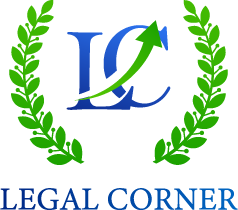Overview
Converting a loan into equity is a strategic financial decision that allows a company to strengthen its capital structure by converting existing debt into share capital. This process is particularly useful for companies looking to reduce their debt burden, improve cash flow, or align the interests of lenders with the company’s growth objectives. The conversion of loan into equity involves legal and regulatory compliance, including obtaining board and shareholder approvals, amending the terms of the loan agreement, and filing the necessary forms with the Registrar of Companies (RoC). Legal Corner provides expert services to guide you through this complex process, ensuring that the conversion is executed smoothly, legally, and in the best interest of the company and its stakeholders.
Eligibility
- Existing Loan Agreement with Conversion Clause:
The company must have a loan agreement that includes a clause allowing the conversion of the loan into equity. This clause outlines the terms and conditions under which the conversion can take place. - Board and Shareholder Approval:
The conversion of loan into equity requires approval from the company’s board of directors and shareholders. A special resolution must be passed during a general meeting, authorizing the conversion and the issuance of new shares. - Compliance with Regulatory Requirements:
The company must ensure that the conversion is compliant with all applicable regulatory requirements, including the Companies Act, 2013, and any sector-specific regulations. This includes filing the necessary forms and documents with the RoC. - Amendment of Articles of Association (AoA):
If the company’s Articles of Association (AoA) do not allow for the conversion of loans into equity, they must be amended to include this provision. This amendment must be approved by the shareholders. - Approval from Relevant Authorities:
In certain cases, particularly for companies operating in regulated sectors, approval from additional regulatory authorities may be required. Legal Corner can assist in obtaining the necessary approvals to ensure full compliance.
Benefits
- Reduction of Debt Burden:
Converting a loan into equity reduces the company’s debt obligations, lowering interest costs and improving cash flow. This strengthens the company’s financial position and enhances its ability to invest in growth opportunities. - Alignment of Interests:
By converting debt into equity, the interests of lenders and shareholders are aligned, as both parties now have a stake in the company’s success. This can lead to more collaborative decision-making and long-term value creation. - Improved Balance Sheet:
The conversion improves the company’s balance sheet by reducing liabilities and increasing equity. This enhances the company’s creditworthiness, making it more attractive to potential investors and lenders. - Enhanced Market Perception:
A company with a strong equity base is perceived more favorably by the market, which can lead to higher valuation, easier access to capital, and better relationships with stakeholders, including customers and suppliers. - Flexibility in Financing:
Converting loans into equity provides the company with greater flexibility in its financing options. It can use equity to attract additional investment or reinvest in the business, supporting long-term growth and stability.
Procedure
- Review of Loan Agreement:
Legal Corner begins by reviewing the existing loan agreement to ensure that it includes a conversion clause. If the clause is absent, we assist in negotiating and amending the agreement to include the necessary provisions. - Board and Shareholder Resolutions:
We assist in drafting and passing the required resolutions at the board and shareholder levels. This includes preparing the special resolution needed to authorize the conversion and the issuance of new shares. - Amendment of AoA:
If necessary, Legal Corner helps in amending the company’s Articles of Association (AoA) to include provisions for loan conversion. This amendment must be approved by the shareholders during a general meeting. - Filing with Registrar of Companies (RoC):
Legal Corner handles the preparation and filing of all necessary forms and documents with the RoC, including Form PAS-3 for the allotment of shares. We ensure that all filings are accurate and completed within the required timelines. - Issuance of New Share Certificates:
Once the conversion is approved, Legal Corner assists in issuing new share certificates to the lenders, reflecting their equity stake in the company. We ensure that this process is compliant with legal requirements and properly documented.
Why Legal Corner
- Trusted Partner for Financial Transactions:
With a proven track record of successful financial transactions, Legal Corner is a trusted partner for companies seeking to convert loans into equity. Our commitment to excellence and client satisfaction sets us apart in the industry. - Expertise in Corporate Finance:
Legal Corner has extensive experience in handling complex financial transactions, including the conversion of loans into equity. Our expertise ensures that the process is executed smoothly, legally, and in the best interest of your company. - Tailored Solutions for Your Business:
We understand that each company’s financial situation is unique. Legal Corner offers customized solutions that align with your specific business goals, whether you’re looking to reduce debt, attract investment, or strengthen your capital structure. - Comprehensive Legal Support:
From reviewing loan agreements to filing with the RoC, Legal Corner provides end-to-end support throughout the conversion process. Our proactive approach minimizes risks and ensures that all legal requirements are met. - Focus on Compliance and Transparency:
Legal Corner is committed to maintaining the highest standards of compliance and transparency. We ensure that all documentation and filings are accurate, complete, and submitted on time, reducing the risk of regulatory issues.












